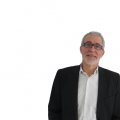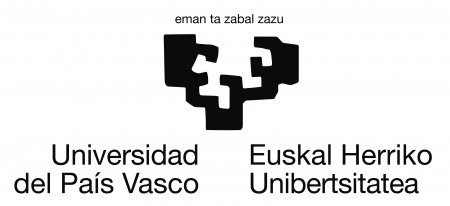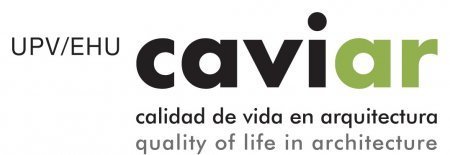
13th Edition of the International Congress on Energy Efficiency and Sustainability in Architecture and Urban Planning (EESAP 13)
Description
The thirteenth edition of the International Congress on Energy Efficiency and Sustainability in Architecture and Urban Planning (EESAP 13), will address the theme of addressing opportunity. In line with the European Union's recovery plan, the focus will be on fostering the improvement of people's quality with models that are greener, more digital, resilient and better adapted to current and future challenges.
We invite all our regulars and those who want to join us in the twelfth edition of our congress to present their proposals. As in the previous editions and given in its academic facet, the congress is especially aimed at students, professionals and researchers.
Since the EESAP8/CICA1 edition, the conference has extended the scope of scientific and technical diffusion to the entire innovative construction sector. Furthermore, it is opened to the business sector, due to their close relationship to meet current social demands on business innovation for achieving higher quality of life.
Once again, the Organizing Committee, a collaboration between CAVIAR Research Group (Spanish abbreviations for Quality of Life in Architecture, UPV/EHU), has opted for innovative and current interest subjects to promote an atmosphere in which professionals, researchers, students and companies will be able to interact and exchange knowledge with the aid of lectures, round-tables, research communications and collaborative innovation workshops (networking). The two congresses will take place during the same days and will share part of the programme and the main lectures. Meanwhile, the research presentations will discuss the specific subjects, while the workshops will promote collaborative projects. The oral presentation sessions will be held in different rooms and the attendees may choose among them.
Topics:
1. Environmental awareness.
2. Urban regeneration from sustainable architecture and energy efficiency perspectives.
3. Sustainable cities and social urbanism; sustainable urban economy.
4. Economy: built experiences - housing, urbanism, technology - ICT, monitoring... 5. Reduce, Reuse, Recyble, Rethink.
6. Lean architecture and urban planning.
7. Cities at risk. Resilience and Redundancy.
8. Built heritage and sustainability. Culture and urban sustainability. Cultural landscapes 9. Smart Communities.
10. Transition.
11. 4.0 Construction
12. Wood and bio-based materials as a sustainable and renewable resource.
Objectives
Debate on addressing the opportunities generated by new models that are greener, digital, resilient and better adapted to the current and future challenges set by the European Union's recovery plan.
To achieve a strategic confluence of research-production training.
Linking actors in the construction industry sector to increase competitiveness by applying new technologies in activities where diffuse but broad expertise is required. To create collaborative business environments.
Activity directed to
- University student
- Teachers
- Professionals
- Profesionales; Mundo empresarial
Contributors
Directors

Rufino Javier Hernández Minguillón
UPV/EHU, Arquitectura
PhD Architect UNAV (1991), Master in Building UNAV (1993), lecturer at the ETSA-UNAV (1984 and 2003), lecturer at the UPV/EHU (since 1997), Professor (2020). ANECA and ANEP assessor in the area of Civil Engineering and Architecture. Founder of the architectural firm AH Asociados. Member of the board of directors of the Basque Construction Cluster ERAIKUNE (2013-) and vice-president (2013-2016). Director of the Master Degree in Sustainable Construction and Energy Efficiency (UPV/EHU). Member of the Academic Committee of the University Master Degree in Energy Efficiency and Sustainability in Industry, Transport, Building and Urban Planning (UPV/EHU). Director of the Master Degree in Advanced Construction (UPV/EHU). Head of CAVIAR Research Group, IT1135-16 (UPV/EHU). Researcher in: eco-efficient industrialised construction, inclusive eco-efficient urban planning, smart architecture and urban planning.
Speakers

Santi Daniele La Rosa
(PhD in Urban and Regional Planning) is Associate Professor of Urban and Environmental Planning at the Department Civil Engineering and Architecture of the University of Catania (Italy). He teaches spatial planning and urban design in Building Engineering MSc course at the University of Catania. His research interests include sustainable urban planning, Ecosystem Services, GIS applications for urban and landscape planning, environmental indicators, Environmental Strategic Assessment, Land Use science and landscape studies. He is author of more than 100 publications on the above mentioned topics and member of editorial board of relevant international peer-review journals, such as Nature-Based Solutions (Elsevier) and Socio-Ecological Practice Research (Springer).

Elma Durmisevic
GTB LAB/ 4D ARCHITECTS
Dr. Elma Durmisevic, EU UIA expert on circular buildings, founding director of EU Laboratory for Green Transformable Buildings in the Netherlands (platform for circular buildings), president of Green Design Centre for South East Europe and design director of 4D Architects in Amsterdam. During 22 years of research within various EU projects and development of reversible buildings and systems, Durmisevic developed tools for measuring circularity of buildings and materials such as: Reversible BIM module, Reuse Potential tool, Transformation Capacity Tool as well as design guidelines and protocol for reversible building design, of which many are integrated into EU guidelines for design of circular buildings. Elma Durmisevic leads development of EU Digital Deconstruction Platform as a part of EU Digital Deconstruction project and was a research leader of EU Buildings as Material Banks project. She holds a PhD at Delft University of Technology on Transformable Building Structures. As Associate Professor at the University of Twente, Durmisevic developed a master program for reversible building design.

Victor Echarri Iribarren
Universidad de Alicante
Catedrático de Universidad del área de Construcciones Arquitectónicas en la Universidad de Alicante. Fundador y director del Grupo de Investigación “Tecnología y Sostenibilidad en Arquitectura” en la Universidad de Alicante. Director del Programa de Doctorado “Arquitectura, Ciudad, Obra Civil y su Construcción” Arquitecto por la Universidad de Navarra (Pamplona, España) y Doctor por la Universidad de Navarra (Pamplona, España). Campos de estudio: Environmental impact, Buildings Energy efficiency, Housing renovation, Ecoarchitecture, Ceramics
Profesora Titular de Universidad del área de Construcciones Arquitectónicas en la Universidad de Zaragoza. Directora de la Cátedra Zaragoza Vivienda. IP del Grupo de Investigación en Arquitectura GIA. Instituto de investigación I3-A. Arquitecta por la Universidad de Sevilla (Sevilla, España) y Doctora por Luleå University of Technology (Luleå, Suecia). Campos de estudio: Zero-Energy buildings, Renovation, Urban regeneration, Housing stock, Life cycle assessment.

Madelyn Marrero Meléndez
Universidad de Sevilla
La Dra. Madelyn Marrero (Puerto Rico, 1968) es Catedrática de la Universidad de Sevilla en el departamento de Construcciones Arquitectónicas II de la Escuela Técnica Superior de Ingeniería de Edificación. Obtuvo el título de Ingeniería Superior en la Universidad de Puerto Rico, es Máster en Ingeniería de Materiales por la Universidad de Illinois y doctora por la Universidad de Sevilla. Es autora de más de 90 artículos y otros trabajos científicos relacionados con eficiencia energética, gestión de residuos, reciclaje de materiales y la huella ecológica. Actualmente coordina el proyecto RecoverIND de ERASMUS+ y el proyecto Modelo holístico para la evaluación de la sostenibilidad del ciclo de vida de las viviendas sociales en Andalucía.

Pablo Martí Ciriquián
Universidad de Alicante
Registration fees
| REGISTRATION | Until 31-07-2022 | Until 05-10-2022 |
|---|---|---|
| 100,00 EUR | 150,00 EUR | |
| 30,00 EUR | 30,00 EUR | |
| 0 EUR | 0 EUR | |
| 20,00 EUR | 20,00 EUR | |
| - | 0 EUR | |
| - | 0 EUR |
Venue
School of Architecture
Plaza Oñati, 2 | 20018 Donostia/San Sebastián
Gipuzkoa
School of Architecture
Plaza Oñati, 2 | 20018 Donostia/San Sebastián
Gipuzkoa
Other events of your interest
There are currently no events available.




